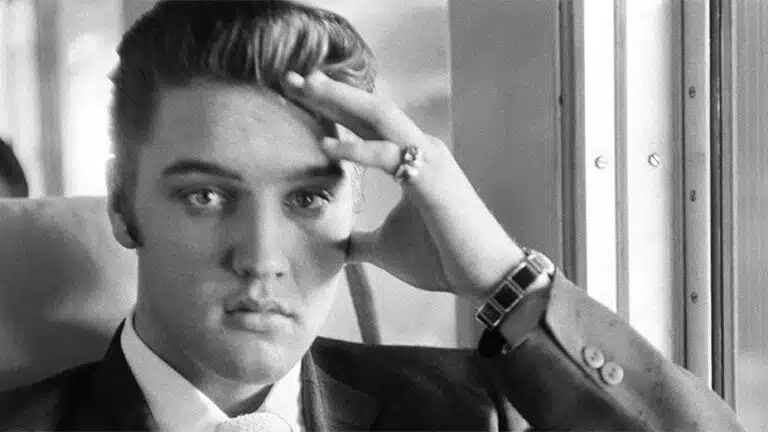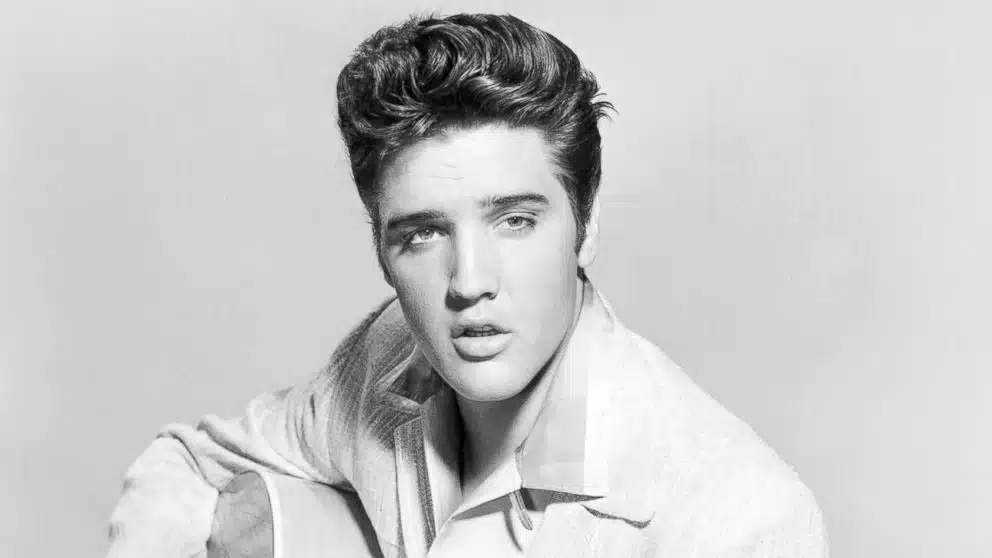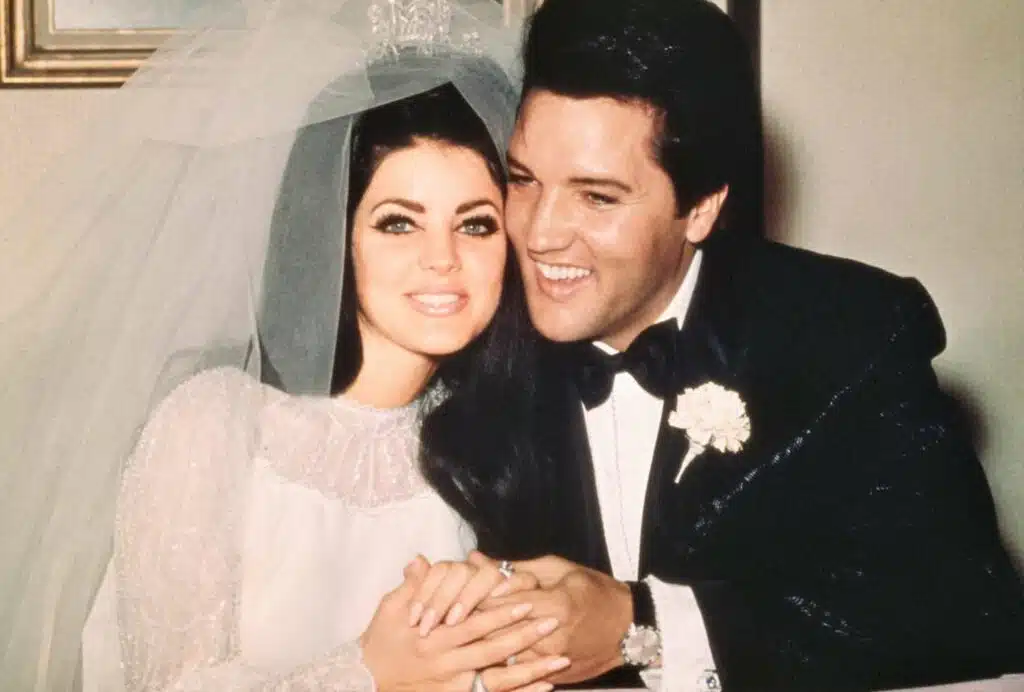Elvis Presley | Prescription Drug-Related Heart Failure
- How Did Elvis Presley Die?
- About Elvis Presley
- Music Career & Film Career
- Marriage & Addiction
- History of Substance Abuse
- Did Elvis Presley Attend Drug Rehab?
- Recovery Is Possible

Elvis Presley, also known as The King or The King of Rock, is well-known as a rock and roll icon of the 50s and 60s. Unfortunately, he is also known for his shocking death at the age of 42.
While some still believe he died of a simple heart attack, others suggest his long-term drug abuse factored into his death.
How Did Elvis Presley Die?
Elvis Presley died on August 16, 1977 at the Graceland mansion in Memphis, Tennessee. He was found by his girlfriend Ginger Alden on the floor of his bathroom. He was then taken to Baptist Memorial Hospital and was pronounced dead.
Initially, Memphis medical examiner Jerry Francisco stated that the cause of death was cardiac arrhythmia. Later, however, lab reports showed that there were many prescription drugs in Presley’s system when he died.
Because of this, Presley likely died of a heart attack due to prolonged abuse of prescription drugs, poor eating habits, and multiple health issues like severe constipation, diabetes, and glaucoma. However, the official cause of death remains unclear.
Cause Of Death Controversy
Francisco’s statement was eventually thrown out because the autopsy was still in progress, and there was no official toxicology report available, when he made the initial statement.
After toxicology was available, medical examiners found 14 drugs in his system, and 10 of them were in “significant quantity.” The drugs included Dilaudid, Percodan, Demerol, codeine, and quaaludes.
Forensic historian and pathologist Michael Baden also noted that Presley had an enlarged heart for a long time. And, with concurrent drug use, it was hard to know whether the cause of death was more related to drugs or other heart and health issues.
Considering Elvis had been given a special badge from President Nixon for his anti-drug work, it was thought that the initial cause of Elvis’s death might have been misreported to save face.
About Elvis Presley
Elvis Aaron Presley was born in Tupelo, Mississippi on January 8, 1935 to Vernon and Gladys Presley. He was born a twin but his brother Jesse died during birth.
At 19, Presley walked into a recording studio in Memphis and paid a few dollars to record a couple of songs for his mother as a present.
Sam Phillips, who owned the studio, loved his voice and invited Presley back to record some more. He would eventually sign him to his record label, Sun Records.
Music Career & Film Career
In 1955, Sun Records sold his contract to Radio Corporation of America (RCA). His first record with RCA was “Heartbreak Hotel” which immediately became popular. His next hit was a double-sided record with “Hound Dog” and “Don’t Be Cruel” in 1956.

Presley then hit The Ed Sullivan Show in September 1956 and his star rose to epic proportions. Besides music, he starred in four major movies including Love Me Tender, Jailhouse Rock, Loving You, and King Creole.
Marriage & Addiction
In 1967, Presley married Priscilla Beaulier in Las Vegas and they had a daughter in 1968 named Lisa Marie Presley. They went on to divorce in 1973.

At this point, he was not doing well emotionally or physically and was addicted to drugs and food, which eventually led to his death at the age of 42.
Elvis Presley’s History of Substance Abuse
Elvis Presley has a long history of substance abuse.
He used and abused a wide variety of prescription drugs including opiates, barbiturates, and sedatives. He obtained most of these drugs with a prescription from his personal physician Dr. George Nichopoulos (Dr. Nick), who was Presley’s doctor from 1967-1977.
Dr. Nick first started treating Presley for pain and was committed to prescribing drugs for him so he wouldn’t turn to illicit drugs off the street.
Did Elvis Presley Attend Drug Rehab?
While not known at the time, hospital records showed that Presley received treatment twice for barbiturate overdoses and once in 1973 for pethidine addiction.
He also received detox and methadone treatments at least two different times. Whether he sought additional treatment services, such as counseling or therapy, is unknown.
Recovery Is Possible
If you’re struggling with prescription drug addiction, you don’t have to suffer alone. There are many more treatment options now than there were when Elvis Presley died.
At Ark Behavioral Health, we can help you build a customized treatment plan to fit your exact needs. We offer a variety of treatment options including detox, inpatient and outpatient care, medication-assisted treatment, and aftercare support.
For more information, please call our helpline today.
Written by Ark Behavioral Health Editorial Team
©2024 Ark National Holdings, LLC. | All Rights Reserved.
This page does not provide medical advice.

Questions About Treatment?
Ark Behavioral Health offers 100% confidential substance abuse assessment and treatment placement tailored to your individual needs. Achieve long-term recovery.
100% confidential. We respect your privacy.
Prefer Texting?
Our friendly support team is here to chat 24/7. Opt out any time.







 Learn More
Learn More








